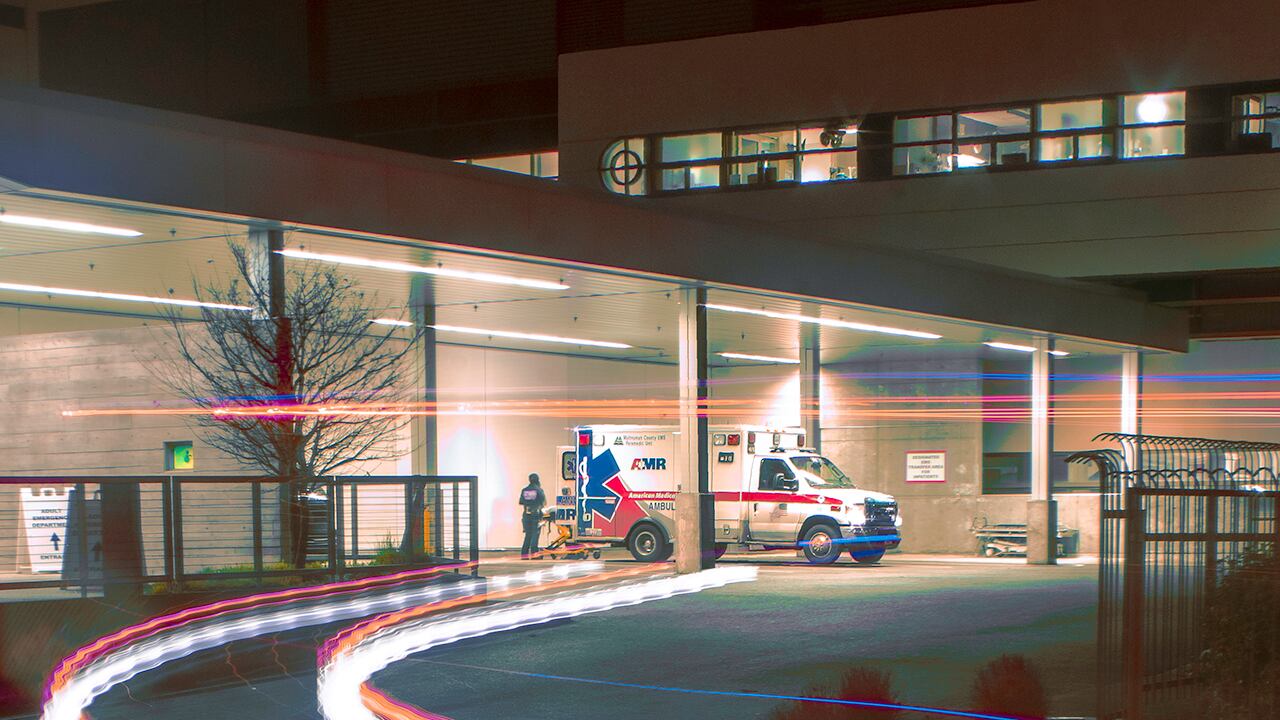By HEATHER ROSE
As an ICU nurse I have seen a lot of tragedy and trauma in my career. Human suffering is everywhere in a critical care unit. Nurses are accustomed to suffering, our patients' and our own, as we carry out our job. We are well versed in being uncomfortable.
As COVID patients slowly take over our unit, I have found myself shaken by a different sort of suffering. The patient who is awake, staring at me with a mix of terror and tears in their eyes. It is unlike any other critical care patient. There is an impending doom that lingers in the air. "Will I get worse? Yesterday I could walk to the bathroom, today I cannot even get out of bed? How much longer will I be able to breathe on my own?" On Monday, my patient is on high-flow oxygen, and by Friday they are on a ventilator. On Sunday, they are on a lung bypass machine. Thank God I encouraged them to talk to family as much as possible while they still could. Did I do everything I could? Did I expose myself to the virus? Have I exposed my family?
This is a different sort of human suffering. The trepidation of the unknown. The old rules are upended, and we no longer know who will get better, who will go home but irreparably changed, and who will never go home.
I am a stoic nurse. Good, bad or otherwise, it is who I have always been. But these days I find myself crying with my patients, unable to wipe away the tears under my head-to-toe safety gear. Gear that hopefully keeps me from ending up in the bed next to theirs. That is part of what punches through my veil of safety: When I care for a patient from a motor vehicle accident, I am not at risk of being hit by that car. However, as I help my young COVID patient sit up in bed, that very act of care could be the head-on collision I never saw coming.

Health care is a different sort of job these days. We are asking a lot of 18 million citizens who did not sign up to run into burning buildings. Then compounding this request as mainstream Americans deny the building is on fire, while others add fuel. No citizen is an island in America; our freedom is interdependent on the collective. So how do we heal a nation with such blatant disregard for the well-being of that collective?
This country was founded on freedom, liberty and equality. Rights that have always been interdependent on individual responsibility to the whole. An agreement preserved in our Constitution. It has always required collaboration to ensure our rights are protected. That is the gift entrusted to us, each citizen, a thread woven together as the fabric of democracy. "One Nation, indivisible"—childhood words I mindlessly pledged allegiance to. No true context until now, as I watch us fall, divided. I fear as we lose the balance between individual rights and responsibilities, so will we lose our democracy.
As I prepare to go back into work this morning, on what was supposed to be a day off, I am worrying for the average American at home on Black Friday. To the millions of you who chose to travel for Thanksgiving and eat with others outside your household…I choose to let my anger towards you go. Some of you are my own family and friends. Coronavirus cases will climb as a direct result of your travel. Your actions have directly endangered my life as a bedside nurse. They have directly endangered the person I love most in this world, an ER doctor. I am choosing to wish you well and hoping that goodwill is a step towards healing our nation. Yet your disregard for the collective shows how fragile this great American experiment is.
I hope you will consider, as December rolls in, that you are not an island in this country. Your actions impact me and my well-being. Your actions impact whether there will be enough staff, hospital beds and ventilators available, maybe even for you. Please don't put my life at risk any more than it already is. Please choose all of us instead of just yourself, even if that makes you uncomfortable. I do not want to be looking into your eyes filled with terror and tears in the months ahead, nor the eyes of the person you love the most. I do not want to be asking your family to call you now, because tomorrow may be too late. I wish I wasn't using fear to scare you into being a responsible citizen. But I am. I am standing inside a burning building on the edge of a burning country, and I don't know what else to do.
Rose, 42, has been a nurse for eight years in Portland, all of that time in an intensive care unit. Two weeks ago, Heather Rose emailed us this letter. It is the message that spurred the reporting and interviews in this story.
